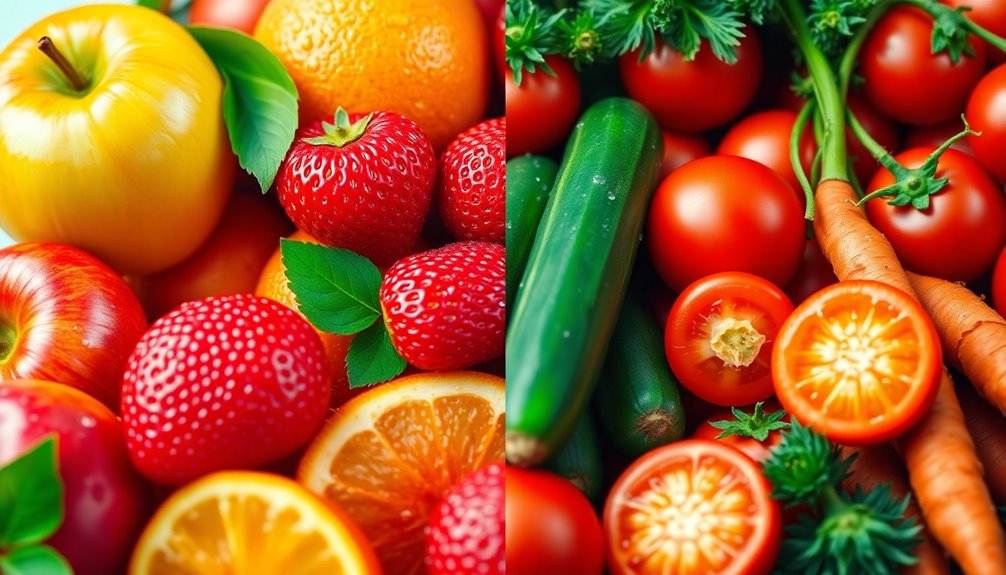Picture this situation: You’re having a great time at a party, having a blast, and then you overhear someone referring to another person as a ‘butter face’.
Confused, you wonder what on earth that means. Well, fear not, because in this article, I’m going to delve into the meaning of ‘butter face’ and its impact on our perceptions of beauty.
From its origins to its prevalence in pop culture, we’ll explore the effects it can have on self-esteem and how to overcome insecurities related to this term.
Let’s redefine beauty beyond ‘butter face.’
Key Takeaways
- Butter Face originated in the early 2000s from American pop culture, deriving from the phrase ‘but her face’.
- Butter Face reflects society’s obsession with physical appearance and perpetuates the harmful idea that physical appearance is the most important aspect of a person’s worth.
- The term negatively impacts self-esteem and perpetuates unrealistic beauty standards, primarily targeting women and perpetuating gender inequality and objectification.
- To challenge beauty standards and promote self-acceptance, society should embrace diversity, redefine beauty based on inner qualities, and cultivate a positive relationship with oneself through self-care.
The Origin of the Term "Butter Face
The term ‘butter face’ originated in the early 2000s, but its exact origins are unclear. It is believed to have emerged from American pop culture and quickly gained popularity in mainstream media.
The term is derived from the phrase ‘but her face,’ which refers to a woman who has an attractive body but an unattractive face. The cultural origins of ‘butter face’ reflect society’s obsession with physical appearance and the objectification of women.
This term has had a significant societal impact, perpetuating harmful beauty standards and reinforcing the idea that a woman’s worth is solely based on her physical attractiveness. It has also contributed to body shaming and the devaluation of women based on their appearance.
Overall, the term ‘butter face’ highlights the damaging effects of superficial judgments and the need for a more inclusive and accepting society.
Understanding the Definition of Butter Face
Understanding what ‘butter face’ actually means can be important in order to avoid using offensive language. The term ‘butter face’ is a slang phrase that refers to a person who has an attractive body but an unattractive face. It is derived from the phrase ‘but her face.’
While it may seem like a harmless joke, it is important to recognize the cultural implications and societal pressures that contribute to the objectification of women’s bodies. This term perpetuates the idea that physical appearance is the most important aspect of a person’s worth. It can be hurtful and damaging to someone’s self-esteem.
Cultural Perceptions and Butter Face
Recognizing the cultural implications and societal pressures surrounding physical appearance is crucial when discussing the term ‘butter face’. People’s perception of beauty is heavily influenced by cultural norms and expectations. The term ‘butter face’ reflects the objectification of women and the emphasis on physical attractiveness above all else. This term perpetuates harmful body image standards and contributes to the commodification of women’s bodies.
Body image: The term ‘butter face’ negatively affects a person’s perception of their own appearance.
Unrealistic standards: It reinforces unrealistic beauty standards by suggesting that a person is only attractive if they have a beautiful face.
Gender inequality: The term primarily targets women, further perpetuating gender inequality and objectification.
It is important to challenge these cultural perceptions and promote body positivity and acceptance for all individuals, regardless of their physical appearance.
Butter Face in Pop Culture
In pop culture, the term ‘butter face’ is often used to mock and demean individuals based solely on their facial features. This derogatory term has made its way into various forms of media and advertising, perpetuating harmful beauty standards.
From movies and TV shows to magazine ads and social media campaigns, butter face jokes and stereotypes continue to be used for comedic effect or to sell products. It’s disheartening to see how easily people are reduced to mere objects of ridicule based on their appearance.
This not only reinforces negative body image issues but also has a significant impact on self-esteem. The constant exposure to such derogatory language and imagery can leave individuals feeling insecure and unworthy, ultimately affecting their mental well-being.
Impacts of Butter Face on Self-esteem
The constant exposure to derogatory language and imagery can leave individuals feeling insecure and unworthy, ultimately affecting their mental well-being. When it comes to body positivity and challenging beauty standards, it is important to recognize the harmful impact of derogatory terms like ‘butter face.’
Here are three ways in which these negative labels can affect self-esteem:
-
Internalizing negative beliefs: Constant exposure to derogatory language can lead individuals to internalize these negative beliefs about their appearance, which can impact their overall self-esteem.
-
Comparison and self-doubt: Derogatory terms like ‘butter face’ can create a culture of comparison and self-doubt, making individuals question their worth and beauty.
-
Limiting self-expression: Feeling unworthy and insecure due to derogatory labels can hinder individuals from fully expressing themselves and embracing their unique beauty.
Promoting body positivity and challenging beauty standards involves rejecting derogatory language and embracing all forms of beauty.
Is Butter Face an Acceptable Term
As we delve into the discussion on whether ‘Butter Face’ is an acceptable term, it is important to examine its potential offensiveness and whether it falls under the realm of harmless banter.
Additionally, we must consider the social impact of using such a term, especially in regards to body image and self-esteem.
Lastly, exploring the consequences of perpetuating this kind of language can shed light on the larger implications it may have on individuals and society as a whole.
Offensive or Harmless Term
You might be wondering if the term ‘butter face’ is offensive or harmless. Well, let me shed some light on this issue.
While some may argue that it’s just a harmless joke, there are social implications and psychological effects associated with using this term.
Here are a few things to consider:
-
Social implications: The term ‘butter face’ objectifies and devalues individuals based solely on their physical appearance. This can contribute to body shaming and perpetuate harmful beauty standards.
-
Psychological effects: Being labeled as a ‘butter face’ can have a negative impact on a person’s self-esteem and body image. It can lead to feelings of insecurity, shame, and even depression.
-
Impact on relationships: Using derogatory terms like ‘butter face’ can damage relationships and create a hostile environment. It promotes a culture of disrespect and undermines the value of mutual respect and acceptance.
Social Impact and Consequences
Using derogatory terms can contribute to a culture of disrespect and perpetuate harmful beauty standards. When it comes to the term ‘butter face,’ its impact on self-esteem and cultural perceptions cannot be overlooked. This term, which refers to someone who has an attractive body but an unattractive face, can significantly affect an individual’s confidence and mental well-being.
The use of such derogatory language not only objectifies and devalues individuals based on their physical appearance but also reinforces unrealistic beauty standards that prioritize certain features over others. This can lead to feelings of inadequacy and low self-esteem, as people strive to meet society’s narrow definition of beauty.
It is important to foster a more inclusive and accepting culture that celebrates all body types and promotes body positivity.
Transition: Understanding the negative consequences of derogatory terms like ‘butter face’ highlights the importance of promoting body positivity and embracing diversity in beauty standards.
Butter Face and Body Positivity
When it comes to beauty standards, it’s time to challenge the narrow definitions that society has imposed on us.
It’s essential to embrace all body types and promote self-acceptance.
Challenging Beauty Standards
Don’t let the term ‘butter face’ discourage you from challenging beauty standards. Society has long imposed a narrow definition of beauty, but it’s time to break free from these constraints and embrace diversity.
Challenging societal norms can empower individuals to feel confident in their own skin, regardless of conventional beauty standards. Here are three reasons why we should challenge these norms:
-
Promotes inclusivity: By embracing diversity, we create a more inclusive and accepting society where everyone feels valued and appreciated.
-
Redefines beauty: Challenging beauty standards allows us to redefine what it means to be beautiful, shifting the focus from physical appearance to inner qualities and individuality.
-
Boosts self-esteem: When we challenge beauty standards, we empower individuals to love themselves as they are, fostering greater self-acceptance and self-esteem.
Embracing All Body Types
As we continue to challenge beauty standards, it is crucial to embrace diversity and promote body positivity.
Embracing all body types is a fundamental aspect of creating a more inclusive society. It means celebrating and accepting individuals of different shapes, sizes, and appearances.
By embracing diversity, we can break free from the narrow mold that society has imposed on us and recognize that beauty comes in many forms.
Body positivity encourages us to love and appreciate ourselves, regardless of societal standards. It reminds us that our worth is not defined by our physical appearance, but by our unique qualities and accomplishments.
Embracing all body types fosters a sense of acceptance, empowerment, and self-love, creating a more inclusive and compassionate world for everyone.
Promoting Self-Acceptance
Promoting self-acceptance is essential in cultivating a positive relationship with ourselves. It allows us to embrace our flaws and imperfections, fostering a sense of self-worth and confidence. Self-acceptance is closely linked to body positivity, which encourages us to love and appreciate our bodies, regardless of societal standards.
Here are three ways to promote self-acceptance and body positivity:
-
Practice self-care: Take care of your physical, emotional, and mental well-being. Engage in activities that make you feel good and boost your self-esteem.
-
Surround yourself with positive influences: Surround yourself with people who uplift and support you. Avoid negative body talk or comparisons that can damage your self-image.
-
Challenge negative thoughts: Recognize and challenge negative thoughts about your body. Replace them with positive affirmations and focus on your strengths.
By promoting self-acceptance and body positivity, we can develop a healthier and more positive relationship with ourselves.
Now, let’s explore how to respond to being called a butter face.
How to Respond to Being Called a Butter Face
There’s no need to worry if someone calls you a butter face, just remember that beauty is subjective. When faced with such comments, it’s important to respond gracefully and build your self-confidence. Here are some ways to handle being called a butter face:
| Responding Gracefully | Building Self-Confidence |
|---|---|
| * Stay calm and composed, avoiding any aggressive or defensive reactions. | * Focus on your positive attributes and qualities that make you unique. |
| * Remember that the opinion of others does not define your worth. | * Surround yourself with supportive and positive people who appreciate you for who you are. |
| * Use humor to diffuse the situation, showing that you don’t take the comment to heart. | * Engage in self-care activities that make you feel good about yourself. |
| * Educate others about the harmful effects of body shaming and promote acceptance. | * Practice positive self-talk and affirmations to boost your self-esteem. |
Butter Face and Gender Stereotypes
Harmful gender stereotypes can have a detrimental impact on self-esteem. These stereotypes often perpetuate unrealistic and narrow ideals of beauty and behavior for individuals based on their gender.
The pressure to conform to these stereotypes can lead to feelings of inadequacy and negatively impact one’s self-image.
Harmful Gender Stereotypes
You should be aware that harmful gender stereotypes perpetuate negative and offensive terms like ‘butter face.’ These stereotypes have harmful effects on individuals and society as a whole. They reinforce unfair expectations and judgments based on gender, leading to discrimination, objectification, and low self-esteem.
To combat these stereotypes, we need to promote inclusivity, equality, and respect for all genders. Here are three ways we can work towards challenging harmful gender stereotypes:
- Educate ourselves and others about the harmful effects of stereotypes.
- Encourage media representation that breaks away from traditional gender norms.
- Foster open conversations about gender stereotypes and challenge them when we encounter them.
Impact on Self-Esteem?
To understand the impact on self-esteem, it’s important to recognize how harmful gender stereotypes can shape one’s perception of themselves.
Body image and societal pressure play a significant role in this. Society often imposes unrealistic beauty standards on individuals, particularly women, leading to feelings of inadequacy and low self-esteem.
The constant bombardment of images depicting a narrow definition of beauty can create a distorted perception of one’s own body. This can lead to a negative body image and a constant striving for unattainable ideals.
The pressure to conform to these standards can be overwhelming and can have long-lasting effects on one’s self-esteem.
It is crucial to challenge and reject these harmful stereotypes to promote positive body image and enhance self-esteem.
Overcoming Insecurities Related to Butter Face
Don’t let insecurities related to being called a butter face hold you back from embracing your unique beauty. It can be challenging to overcome these insecurities, but with the right mindset and support, you can learn to love and accept yourself just the way you are.
Here are a few ways to overcome insecurities and promote body positivity:
-
Surround yourself with positivity: Surrounding yourself with supportive and loving people who appreciate you for who you are can help boost your confidence.
-
Focus on your strengths: Instead of dwelling on your perceived flaws, focus on your strengths and unique qualities that make you special.
-
Practice self-care: Taking care of yourself physically, mentally, and emotionally can help you feel more confident and comfortable in your own skin.
Redefining Beauty Beyond Butter Face
Overcoming insecurities related to ‘butter face’ is a journey towards self-acceptance and self-love. However, it’s important to recognize that beauty standards are subjective and can be harmful.
It’s time to redefine attractiveness and promote gender inclusivity.
In today’s society, the notion of attractiveness goes beyond physical appearance. It encompasses confidence, intelligence, kindness, and authenticity. By shifting our focus away from solely external features, we can create a more inclusive and accepting environment.
Redefining beauty means celebrating the diversity of all individuals, regardless of their perceived flaws. It means embracing uniqueness and understanding that beauty comes in many forms. By challenging societal norms and embracing a more inclusive definition of attractiveness, we can empower individuals to feel confident and appreciated for who they are, rather than solely how they look.
Frequently Asked Questions
What Are Some Examples of Pop Culture References to the Term ‘Butter Face’?
Pop culture references to the term "butter face" can be found in various forms of media. Social media has played a role in perpetuating its use, while there may be instances where the term has been reclaimed or subverted in pop culture.
How Does the Term ‘Butter Face’ Affect Individuals’ Self-Esteem?
How does societal beauty standards impact our self-esteem? The body positivity movement aims to challenge these standards and promote self-acceptance. It’s important to prioritize inner beauty and embrace our unique features.
Are There Any Alternative Terms or Phrases That Are Used to Describe the Same Concept as ‘Butter Face’?
There are alternative terms used to describe the same concept as "butter face." Cultural differences play a role in the variety of terms used. It’s important to be aware of the potential impact these terms can have on individuals’ self-esteem.
Is the Term ‘Butter Face’ Primarily Used in Western Cultures, or Is It Recognized and Understood Globally?
It’s important to consider cultural differences and societal beauty standards when discussing the global recognition and understanding of the term "butter face." These factors can greatly influence how the term is perceived and used worldwide.
Can Individuals Who Have Been Called ‘Butter Face’ Overcome Their Insecurities and Redefine Their Own Beauty Standards?
Individuals who have been called ‘butter face’ can overcome their insecurities and redefine their own beauty standards. It requires self-acceptance, building confidence, and surrounding oneself with positive influences.
Conclusion
In conclusion, understanding the meaning of ‘butter face’ sheds light on the harmful impact of beauty standards on individuals’ self-esteem.
It is a term that has gained popularity in pop culture, perpetuating harmful gender stereotypes.
However, it is crucial to recognize that beauty goes beyond physical appearance.
Overcoming insecurities related to being called a butter face requires redefining beauty and embracing one’s unique qualities.
By doing so, we can challenge societal norms and create a more inclusive and accepting environment for all.










